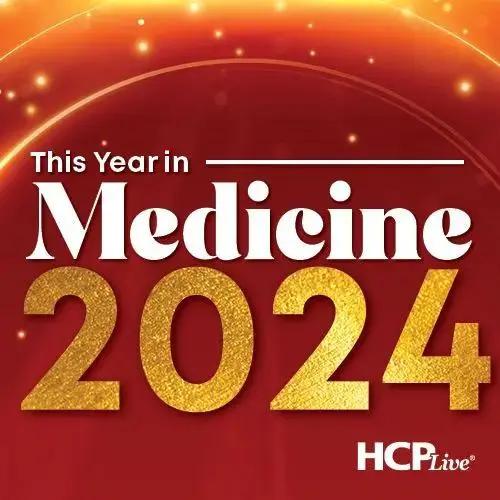Excluding C difficile from Gastrointestinal Pathogen Panels Reduces Unnecessary Treatment
A study at Mayo Clinic Arizona found that removing Clostridioides difficile from gastrointestinal pathogen panels (GIPP) reduced unnecessary treatments and improved diagnostic stewardship without delaying diagnoses. Before the intervention, C difficile was detected in over half of GIPP tests, often leading to unnecessary treatment. After removing C difficile from the panel, GIPP orders decreased by 17%, and prescriptions for C difficile treatment significantly dropped. Despite the change, no delays in diagnosis were reported. The intervention encouraged more targeted testing (toxin-first with PCR) rather than relying on broad panels, which reduced treatment of incidental colonization. These findings highlight the effectiveness of diagnostic stewardship and suggest that similar approaches could be applied to other infectious disease panels.
CDC: Salmonella Outbreak Linked to Cucumbers
A Salmonella outbreak linked to cucumbers has sickened 68 people across 19 US states, with 18 hospitalized but no fatalities reported. The outbreak has been traced to cucumbers grown by Agrotato in Sonora, Mexico, and distributed by SunFed Produce LLC, which recalled the affected products on November 27, 2024. The CDC advises consumers to check for “SunFed Mexico” stickers on cucumbers and discard or return any affected products, particularly those purchased between October 12 and November 26. Symptoms of Salmonella infection include diarrhea, abdominal cramps, fever, and nausea, and while the infection typically resolves on its own, certain populations such as young children, the elderly, and immunocompromised individuals may require medical attention. Consumers are also urged to wash items and surfaces that may have come into contact with the recalled cucumbers.
A Framework for Reducing Antimicrobial Stewardship Disparities
Jacinda C Abdul-Mutakabbir, PharmD, MPH, developed the Equity in Antimicrobial Stewardship Efforts (EASE) framework to address disparities in antimicrobial prescribing practices across racial, ethnic, and social groups. Working with her research partner, Karen Tan, PharmD, BCIDP, Abdul-Mutakabbir identified significant inequities related to factors such as race, gender, sexuality, and social vulnerability. The EASE framework aims to reduce these disparities by promoting data collection and disaggregation, starting with race and ethnicity and expanding to other social determinants of health. Abdul-Mutakabbir advises other institutions to begin with smaller, focused projects targeting specific disparities, such as racial or educational inequalities, before scaling up efforts. The framework was detailed in a recent publication and highlights the importance of addressing antimicrobial stewardship inequities through targeted, data-driven strategies.
Phase 2 Study for Combination Hepatitis Therapy Meets Primary Endpoint
Atea Pharmaceuticals announced that its investigational combination therapy for hepatitis C (HCV), consisting of bemnifosbuvir and ruzasvir, met the primary endpoint in a Phase 2 trial, achieving a 98% sustained virologic response (SVR12) at 12 weeks post-treatment after just 8 weeks of therapy. This promising result was observed in non-cirrhotic patients infected with HCV genotypes 1-4, with 99% of adherent patients achieving SVR12. In cirrhotic patients, the SVR12 rate was 88%. The therapy demonstrated robust pan-genotypic potency, favorable safety profiles, and minimal drug-drug interaction risks. Atea plans to initiate a Phase 3 trial in early 2025, aiming to enhance patient convenience with a fixed-dose combination tablet and to further assess efficacy, particularly in cirrhotic patients with a longer treatment duration.
Navigating Uncertainty And Raising Awareness About Long COVID
Alba Azola, MD, a leading expert on Long COVID, discussed the challenges patients face with this often misunderstood condition. Many individuals downplay their symptoms, partly due to the psychological difficulty of accepting that something is wrong after a disease like COVID-19, which is typically expected to result in full recovery. Azola highlighted ongoing research showing that even patients who seem to have fully recovered from COVID-19 often continue to experience Long COVID symptoms. The trajectory of recovery remains uncertain, with some recovering in one to two years, while others face persistent symptoms for much longer. Azola stressed the importance of raising awareness about Long COVID, especially considering its historical mischaracterization as psychosomatic, a bias that has often affected conditions predominantly affecting women. She emphasized that prevention through vaccination and minimizing reinfection risks are key, as Long COVID can affect anyone, including adolescents and children. Azola concluded by calling for continued research, early diagnosis, and increased awareness to ensure that Long COVID is recognized as a serious, legitimate condition that requires attention and support.







